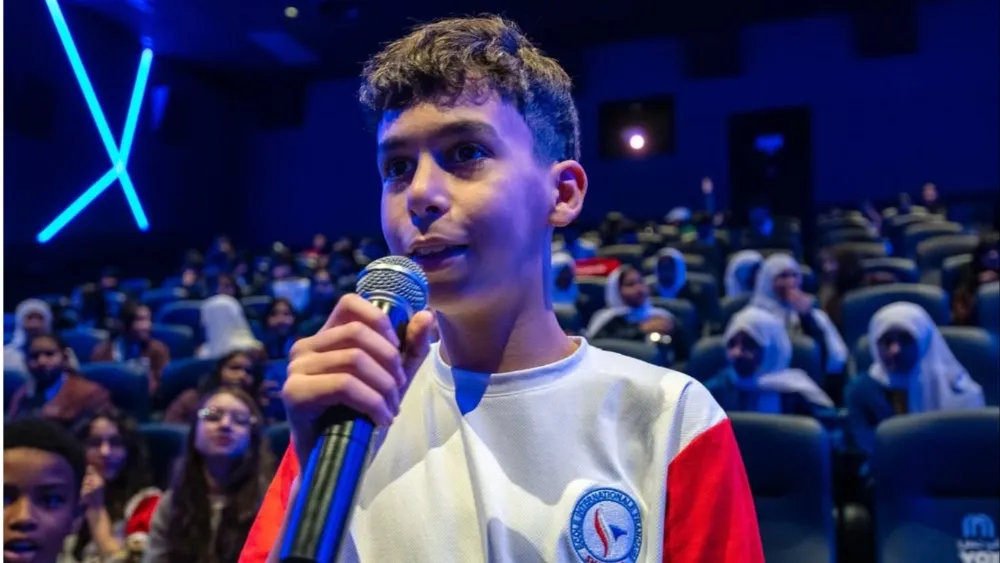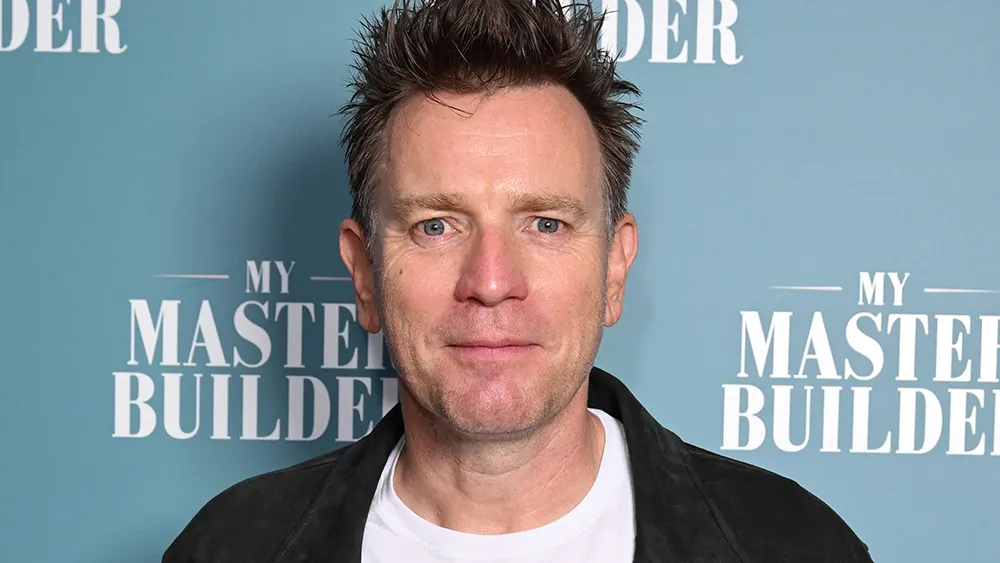Copyright Variety

In much of the world, children’s cinema still struggles for recognition, too often dismissed as educational side programming rather than an artistic or commercial force. The Sharjah Intl. Children’s Film Festival, which recently closed its 12th edition (Oct. 6-12), makes a compelling counterargument. The festival has evolved from a regional showcase into a gathering point for a growing international movement, one that sees children not just as viewers, but as participants, critics, and creators. Across a week of screenings, workshops, and cross-cultural exchanges, SIFF reaffirmed that youth storytelling isn’t a niche, but a laboratory for empathy, creativity and imagination. Here are five takeaways from this year’s festival. Junior Jurors: When Kids Become the Critics SIFF’s junior jurors continue to embody the festival’s founding idea: that film education begins not only in classrooms, but in conversation. For many participants, the experience was transformative. Fourteen-year-old Yukhti Sharma called the role “a privilege that makes you see how films actually work, from the pacing, to the angles, to the emotion.” Fellow juror Hawraa Yaser reflected that it taught her “young people can make a difference in how stories are told,” while Amal Abdulaziz Alabdouli observed that she now watches movies “for symbolism, rhythm, and how music changes mood.” Their comments reflect how the program reframes spectatorship as authorship. By inviting children to deliberate, argue, and choose winners, SIFF is essentially teaching media literacy as a creative discipline, cultivating audiences who interpret film critically, not passively. It’s a form of empowerment: to trust children with taste, not just entertainment. Global Connect: Children’s Cinema Finds Its Voice One of the most striking through-lines at this year’s SIFF wasn’t on screen but in panel rooms like the Global Children and Youth Film Congress, where festival directors from around the world compared notes on the triumphs and challenges in sustaining children’s cinema. From Johannesburg, Firdoze Bulbulia, founder of the Nelson Mandela Children’s Film Festival, reminded peers “children are the most important investment any society can make. Their minds are open, curious, full of possibility –– not yet jaded by cynicism.” Too often, she noted, “the broader industry overlooks this space because it doesn’t promise immediate commercial returns. But the real value lies in shaping how young audiences see the world and each other.” Through initiatives like the Africa Charter on Children’s Broadcasting, Bulbulia has spent decades turning that conviction into policy: that children’s media is not charity or pedagogy but a civic right. Ralm Lee, director of South Korea’s Busan Intl. Kids and Youth Film Festival, takes a scientific approach. BIKY partners with filmmakers, educators, scientists and local corporations to study how stories influence empathy and cognitive development. “Children’s cinema isn’t a side genre, it’s where the future of storytelling begins,” she explained. “Once people witness the impact, like a child making their first film, or an audience discussion that changes how adults see the world, it’s impossible to dismiss this field as ‘small.’” India’s Shruti Rai, who heads the Chinh India Kids Film Festival, echoes that belief through her Chinh Media Literacy program, which trains schoolchildren to make films of their own. Chinh was also the first festival in the world to introduce a pre-K jury, in which children aged three to seven evaluate films made for their age group, an audacious act of trust that redefines what “youth participation” could mean. “We’re not waiting for adults to make films for children,” Rai emphasized. “We’re teaching children to build their own cinematic universe. We’re sowing seeds that take years to grow, but they’re growing.” Together, these directors and many others present at SIFF form an emerging network with shared goals, steeped in education, access and storytelling itself. Sharjah’s role is less about leading than connecting, bringing voices from across the globe into the same conversation about what children’s cinema can be. Infrastructure as Vision: Sharjah Builds a Creative Ecosystem SIFF’s growth is part of a broader creative vision taking shape across the emirate of Sharjah. Sharjah Media City (also known as Shams), a key partner of the festival, has rolled out new production spaces, digital media programs, and talent incubators designed to turn cultural investment into long-term industry infrastructure. The synergy with SIFF isn’t structural, the two entities operate separately, but philosophical: both see youth and creativity as long-term infrastructure. SIFF director Sheikha Jawaher bint Abdullah Al Qasimi has often described the festival as a bridge between education and industry, a place where imagination becomes a professional pathway. With Shams expanding the technical side of that equation, Sharjah is effectively creating an ecosystem where storytelling and entrepreneurship reinforce each other. In an era when “creative economy” has become a global buzzword, Sharjah’s approach feels unusually grounded. Its bet on culture isn’t a branding exercise, but a sustainable public and civic investment. Investing Locally: Emirati Voices Step Into the Spotlight For the young Emirati filmmakers premiering at or indeed returning to SIFF, that infrastructure can’t come soon enough. Fatimah Alshamsi described the current moment as one of possibility but also fragility. “Real support begins when the festival ends,” she explained. “We need labs, grants, and mentorship that let us grow between festivals and connect with patrons who believe in a homegrown scene.” Her film, “Wa’ad,” which was part of the Arabic Short Films section and warmly received by audiences, reminded her that the next phase of Emirati cinema begins with its youngest viewers. “The kids in my screening weren’t shy,” she recalled. “They gasped, laughed, and even scolded the characters. It showed me our stories don’t need external validation. They can grow from how our children see themselves.” Filmmaker Ali Fuad, who took home top honors in the Documentary section for “Guardians of the Mountains,” views storytelling as preservation. “Someone once told me we have nothing to show our children about our past,” he reflected. “That sense of responsibility drives me.” Fuad hopes to bring Emirati history to global audiences “in its authentic form, not as stereotype, but as memory.” Together, these filmmakers embody Sharjah’s wager: that by investing in local creators early, the emirate can build a film culture that is both exportable and deeply rooted. Digital Futures: Expanding Access Through Technology If SIFF’s soul lies in tradition, its gaze is firmly on the future. This year’s edition showcased AI-assisted editing, mobile filmmaking, and digital-post workshops, encouraging participants to write, shoot, and cut shorts right on their own devices. The initiative is less about novelty than access. In a region where film schools remain scarce, smartphones have become entry-level studios, tools of both creation and inclusion. Festival director Sheikha Jawaher bint Abdullah Al Qasimi called it “a future where every child with a story and a smartphone can become a filmmaker.” That ethos reframes technology as a way to democratize creativity without diluting it. By embracing mobile and AI tools, SIFF isn’t chasing trends but dismantling barriers, turning digital literacy into artistic agency. In a space where stories once required institutions, the next generation is learning to build its own.



